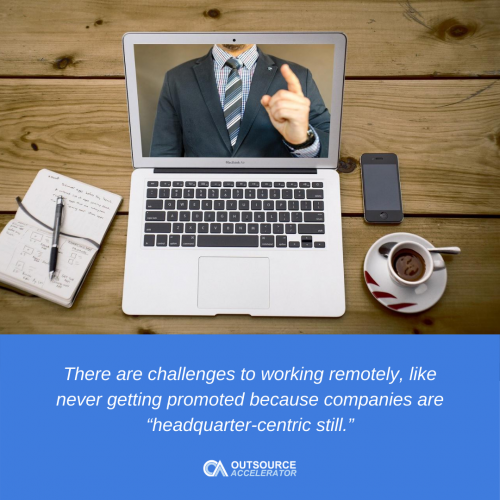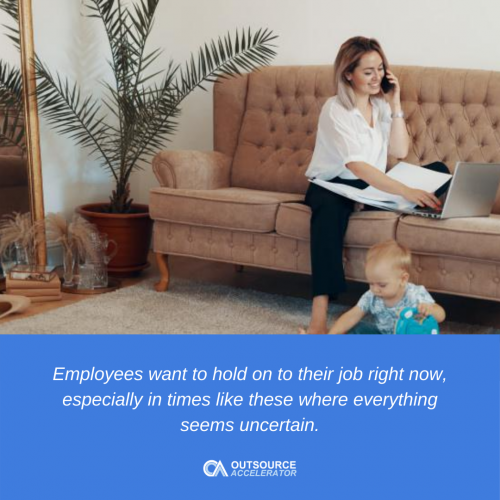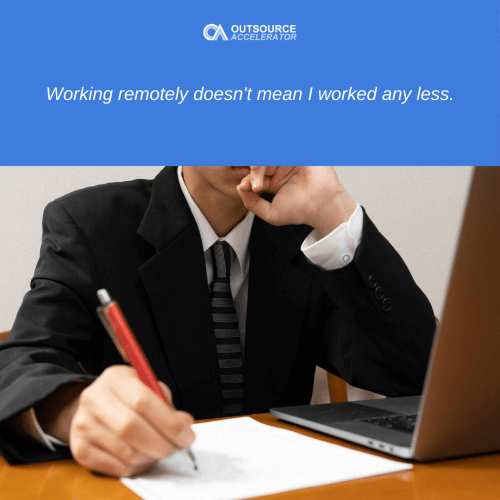Sacha Connor of Virtual Work Insider – Remote work fundamentals for businesses

About Virtual Work Insider
Derek Gallimore talks with Sacha Connor, founder and CEO of Virtual Work Insider. The company provides trainings, assistance, and partnerships to make remote work easier for businesses.
For almost a decade now, Sacha has been working remotely and has been a speaker and virtual coach for businesses. Now, she shares insights about remote work during the pandemic. They tackle about the views about remote work pre- and post-COVID and how businesses can operate properly with this arrangement.
Virtual Work Insider: How Sacha got into the remote work industry
Virtual Work Insider teaches people how to lead, communicate and collaborate effectively across distance. The idea for the company started when Sacha and her husband had their first baby while she was working as a marketing director for Clorox. She said that they decided that they needed to kind of make a long term plan for the family, and that they needed to make a decision whether they wanted to live near the people they love, or near the careers that they love.
It wasn’t going to be an easy decision, so Sacha had a bold idea and took the risk of asking her bosses if she could do her work remotely. She became the company’s work from home guinea pig, and started working remotely in 2010 when this kind of setup “was pretty unheard of.”
Sacha said that there are challenges to working remotely, like never getting promoted because companies are “headquarter-centric still.” However, she took that as a challenge, led her team from a distance, and re-learned everything.
Virtual Work Insider started as a passion project for Clorox back in 2012, but long story short, Sacha said that she “was bitten by the bug of trying to help people to be able to lead and communicate and collaborate across that distance,” because she knows how hard it is. Sacha wanted people to not have to go through that huge learning curve that she did, by helping teach them the skills, so she created the business a little over 18 months ago.
It actually turned out to be a really terrific timing to step into the remote work space.

The impact of COVID-19 to remote work
At first, Sacha thought that since she’s been working remotely for 10 years, that this is “the marathon she didn’t know she was training for.” However, she quickly realized that this is not the normal remote work that she’d grown to embrace.
She said that we’re experiencing “work-life integration like we’ve never had before.” Everyone is juggling work in life “like crazy,” and right now she’s trying to help clients identify first that this isn’t normal remote work. Sacha added that this is a marathon, it’s not a sprint. “We need to not only help people with the skills to do it, but we actually have to be really empathetic with each other right now during this time because every single person is in a unique situation in terms of what it is that they’re trying to juggle and keep their head above water.”
Organizations are also finding ways to provide support in terms of health and well-being, since “there’s a lot of anxiety going on right now.” A lot of organizations are trying to help their employees through providing leadership skills training, programs on how to manage anxiety and maintaining work-life balance, as well as equipment deployment.
Managing productivity while working remotely
It may be hard to find the balance when managing a team remotely, some organizations may want to measure everything their employees do, while others trust their employees and “treat them like adults.”
Sacha said that while this is true, organizations must realize that “at the core of the vast majority of employees is they want to do a good job.” Employees want to hold on to their job right now, especially in times like these where everything seems uncertain.

She said that an advice she could give for employees who feel like they weren’t being trusted is to “reground with their employer or manager and remind them that their “goals are the same, and both are trying to help the company succeed.” She added that it helps to reinforce that you are there to help meet that goal.
Additionally, Sacha said that managers and employers need to be vulnerable, and that conversations need to happen for a better employer-employee understanding and engagement. She said employees not comfortable communicating with their employers can result in burnout.
For those who’d like to get in touch with Sacha, feel free to email her at sacha@virtualworkinsider.com
References:








 Independent
Independent




